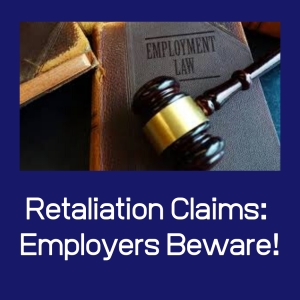A Tale of Two Statutes: What are Compensable “Hours Worked”?
A recent decision by the Pennsylvania Supreme Court underscores the fact that although an employer may be in compliance with the federal Fair Labor Standards Act (“FLSA”), it may at the same time be in violation of the Pennsylvania Minimum Wage Act (“PMWA”).
The case, In Re: Amazon.Com, Inc. et al. v. Amazon.com, Inc., Amazon.com.DEDC, LLC, and Integrity Staffing Solutions, Inc. (43 EAP 2019), involved a class action brought by two employees who worked at an Amazon warehouse in Pennsylvania and sought to be compensated for time spent at the premises waiting to undergo and undergoing mandatory security screening.
As discussed below, a federal district court had dismissed the employees’ claims under the FLSA and the PMWA, but the federal Sixth Circuit Court of Appeals certified the case to the Pennsylvania Supreme Court to address the questions as to whether the PMWA applied to the employees’ claims and whether there is a de minimus exception to the PMWA.
RETALIATION CLAIMS: EMPLOYERS BEWARE!
Most employers these days are aware of the many workplace claims an employee might bring, including allegations of discrimination on account of race, color, religion, sex, national origin, sexual orientation, pay, age, or disability. Among other claims are those brought under the Fair Labor Standards Act (minimum wage, overtime) and the Family Medical Leave Act.
Employers paradoxically seem less aware of a retaliation claim an employee may bring. Paradoxically, because as reported by the Equal Employment Opportunity Commission (“EEOC”-the federal agency responsible for enforcing laws prohibiting employment discrimination), retaliation claims constituted the highest percentage of all charges filed in its fiscal year 2019.
Moreover, as discussed below, retaliation claims, by which an employee can obtain the same remedies as discrimination claims, are often easier for an employee to prove.
A recent opinion by the United States Court of Appeals for the Third Circuit (covering Pennsylvania) illustrates what an employee must do to state a case for retaliation and how an employer might defend the action.
THE SIDE GIG AND THE FLSA: THE SIXTH CIRCUIT KEEPS UP WITH MODERN ECONOMIC REALITIES
A recent case from the United States Court of Appeals for the Sixth Circuit demonstrates the ongoing struggle to apply the Fair Labor Standards Act (“FLSA”) to the “side gigs” that have come to signify the modern employment market. In Acosta v. Off Duty Police Services, Inc., United States Court of Appeals for the Sixth Circuit, Nos. 17-5995/6071 (February 12, 2019), the Sixth Circuit held that security offers working for Off Duty Police Services (“ODPS”) as a side job were employees entitled to overtime pay under the FLSA.
ODPS workers were either sworn law enforcement officers who worked for law enforcement entities during the day, or unsworn workers with no background in law enforcement. All workers had the same duties, but sworn officers earned a higher hourly rate. Duties included “sitting in a car with the lights flashing or directing traffic around a construction zone.” They were free to accept or reject assignments, but would be punished by withholding future assignments if they did so. When they accepted an assignment, ODPS instructed the workers where to report, when to show up, and who to report to upon arrival. ODPS provided some equipment, but workers did have to use some of their own equipment. Workers followed customer instructions while on assignment, and only occasionally received supervision from ODPS. ODPS paid workers for their hours upon submission of an invoice. Workers did not have specialized skills, as sworn officers and unsworn workers had the same duties.
ODPS treated the workers as “independent contractors.” As the facts set forth in the Sixth Circuit opinion demonstrate, the factors relevant to determining whether a worker is an independent contractor or employee do not provide a clear answer. The United States District Court for the Western District of Kentucky broke the tie this way: the court held that “nonsworn workers” were employees, but that the sworn officers were independent contractors because they “were not economically dependent on ODPS and instead used ODPS to supplement their incomes.”
The Sixth Circuit disagreed, noting that the FLSA is a broadly remedial and humanitarian statute, designed to improve labor conditions. The Sixth Circuit applied the “economic reality” test to determine that the sworn offers were also employees and not independent contractors, and to uphold the finding that unsworn workers were employees. Specifically, the Court noted that the officers provided services that represented an integral part of the business, and that the work required no specialized skills, that the officers made only limited investment in equipment, and that the workers had little opportunity for profit or loss. The Court noted that the facts did not “break cleanly in favor of employee or independent contractor status” regarding the right to control the work for the sworn officers.






















